INTERVIEW CONTINUED FROM PREVIOUS PAGE
Do you see signature dishes as a positive?
Yeah. It’s kind of a positive and a negative. I was describing to somebody the idea of these dishes, like the Big Nasty and the shrimp and grits, kind of hem me in. Customers won’t really follow me. They want that chicken biscuit with gravy, and I want to do grain salads or something like that. I don’t get much back when I start to do that kind of stuff. I describe it as bars on my window. Somebody said, “Yeah, gold bars on your window.” At this point, this is a big operation. There are 65 people here. We need to kind of keep it moving. I can’t be irresponsible and just do what I want to do, be damned what people think. I wish I was that kind of cutting edge, egotistical, whatever it takes to do that. This place is pretty much an institution, and part of the responsibility is not to mess with it.
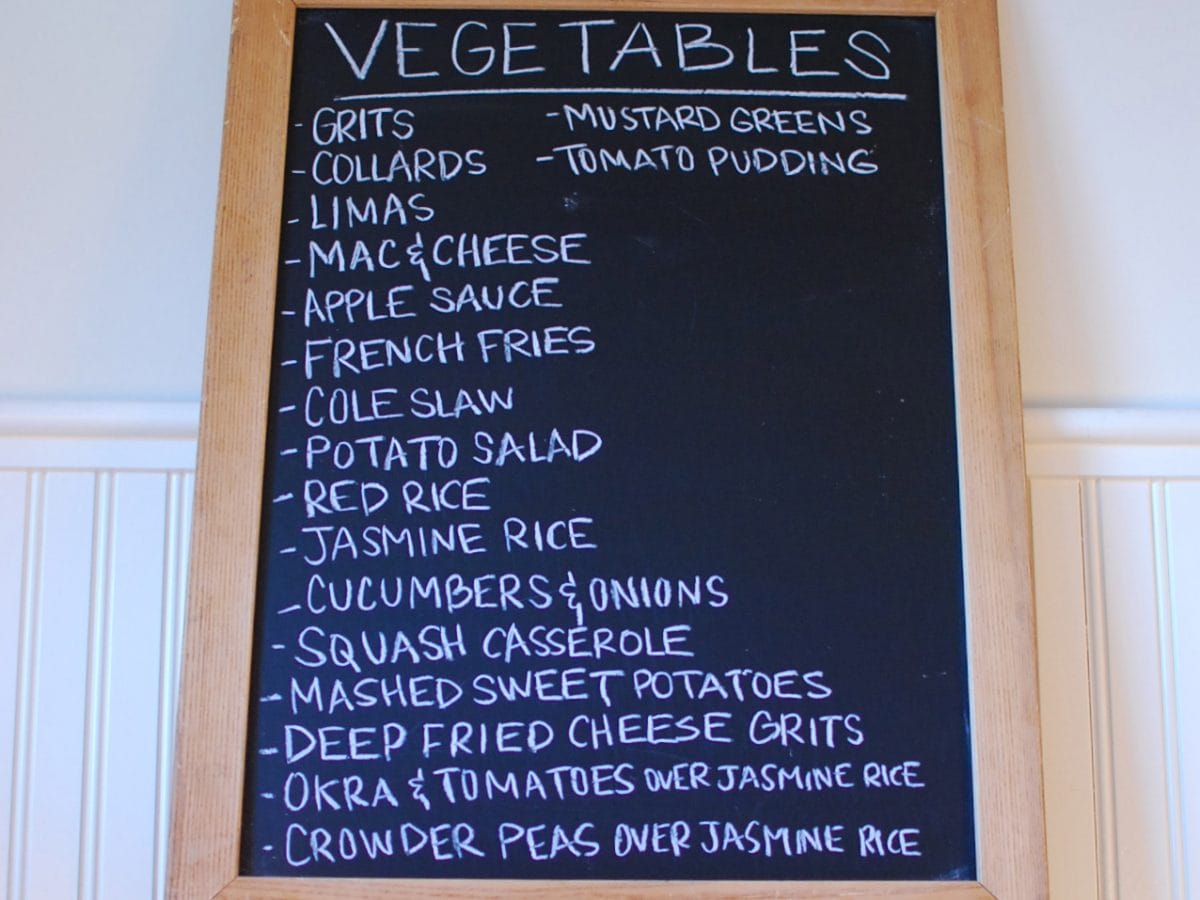
What do you look for when you’re hiring somebody to work in your kitchen?
Stamina. It’s better now since the renovation. Before it was kind of an impossible place to work. You needed kind of those twisted people that could take a beating and still carry a load. Creativity is great to a certain level, but when we’re doing as many people as we’re doing today, we’ve got a million things to do, and we do it over and over and over, and it needs to be done right, A+. We used to have a lot – we used to have a branch of Johnson & Wales here –and we’d hire students all the time. They would come and I was like, “You can’t give me C- work. That’s fine over at school. That’s your money, I don’t care, but every time you come here, I need A+ work.” I want people that are consistent, strong, and reliable.
What’s your favorite part about owning a restaurant?
I like being busy. The adrenaline rush, the kick you get from being busy, and everything goes smooth. That’s what I’m addicted to, now at this point. My wife says it doesn’t matter how many wheels are coming off, as long as you’re busy, which is about right.
What’s the biggest challenge of owning a restaurant?
Being the owner, and being the chef are two different perspectives. To keep both of those perspectives in check is the most challenging part of it. You’re a chef. You’ve got a lot of ego. Like I said, “I want to do what I want to do, but as a restaurateur, this is what people are lining up for, and this is what they’re paying for, this is what we need to do.” Those two, sometimes working against each other, balancing is the hardest part. And then there’s the paperwork. I hate the paperwork.
Can anybody help you with that?
Yeah, they try, but in the end it’s hard to do it. My wife helps me some, but she has a full-time job. I have managers that all do it, but nobody has the perspective that I have, and in the end, I really need to sign off on everything.
Can you imagine opening another restaurant?
I can never imagine opening another Hominy Grill. I do often dream of another restaurant, like a little vegetarian place that I don’t need anybody to come into or not. To open another Hominy Grill, or to open any restaurant that is not going to be as busy as this one is going to be a big letdown. This has been a great restaurant, and I have my hands full and I’m not itching to open anything else, although there are parts of this I would like to do a little differently. I sometimes imagine splintering off one section of it, the breakfast part or something, and just doing that on a smaller scale. My father’s advice was find one thing, make it real good, and then make a lot of it. He also said to find a building with parking, so he’s been pretty right with his few pearls of wisdom that he’s given me over the years.
What would you like to be known for as a chef?
I would like to be known for cooking this food. People don’t cook at home much anymore and haven’t since the last couple generations. When I was growing up, there were commercials on TV, like, “What’s a nice girl like you doing in a place like this?” Kitchen work was drudgery. As a housewife, you shouldn’t have to be here. Make things convenient and processed, and boiled in a bag, and spray on, and wipe off. Women were emancipated from doing the daily cooking, which is nice on some levels, but they stopped cooking and didn’t teach their daughters how to cook, or their sons, in my case. After a couple generations, they lose people, and they lose the identity of those dishes being passed down from generation to generation. I would like for this restaurant and for myself to be known as kind of a place where our DNA and identity is living and kept alive and passed down. It’s always exciting to me when a customer starts telling me about a dish they’re eating, and how their grandma cooked it. “One time we had it in a cabin.” These kind of memories. I want my food to stimulate that and give ‘em – in this case – a Southern identity. Something to look for. This is my food, these are my people. As a chef, that’s kind of my goal. This is a storehouse, a DNA, and pass it back to people. I’m not trying to reinvent anything. These dishes have a history, and I want people to kind of feel that when they eat it.
What is your top selling dish here?
The Big Nasty biscuit’s pretty popular. The shrimp and grits is popular. We sell a fair amount of fried chicken.
Why do you think those dishes resonate with people more than others?
Mainly because they’ve been on TV shows. Without our mothers to pass it down, we start to get all our ideas of what to eat by watching TV now. This is a new phenomenon, where people get takeout and they go home and they watch TV for three or four hours and that makes them a gourmet. The stuff that’s been on “Man v. Food” or “No Reservations,” those are dishes people come for a lot. Everything on the menu has its place and sells well. If not, it gets rotated out. That’s one of the reasons I don’t change that daily menu very much. It took years to kind of tune it, so there’s a balance of things, and everything sells, nothing sits around. There’s no duds. Everything’s a good selling dish. It’s a nice balance.
You’re talking about cooking at home. What’s the last meal that you made at home?
Salad, and I had Brunswick Stew last night with salad and cornbread. Technically I only made the salad at the house. The Brunswick stew came from the restaurant, and so did the cornbread. We cook a lot of beans and rice at home. We cook mostly vegetarian food. I rarely cook meat. I will cook with meat. I make beans with bacon in ‘em. That’s fine, but my wife especially wants me to cut down on the meat, and I feel that it’s the right thing to do, kind of globally, to move away from mass consumption, although I wouldn’t say it’s a trend right now, although I definitely think it will be in the future. If not in the next 10 years, the next 20 years. Everything’s too cheap for us, and if you start paying the real cost on food, we won’t be having hamburgers every day.
If you could only cook with one more protein, what would it be, and how come?
Shrimp, definitely. To be in this place, I think that’s kind of the crown jewel of the coast here, are the great shrimp. They’re flexible enough, and tasty enough, that would be it, although it would be hard to do it without some bacon too.
Who’s one chef that you’ve never cooked with before that you would most like to cook with?
I think it would be fun to cook with Mario Batali. I’ve grown to really respect him for what he’s done in the industry. Gabrielle Hamilton, I would really enjoy cooking with her.

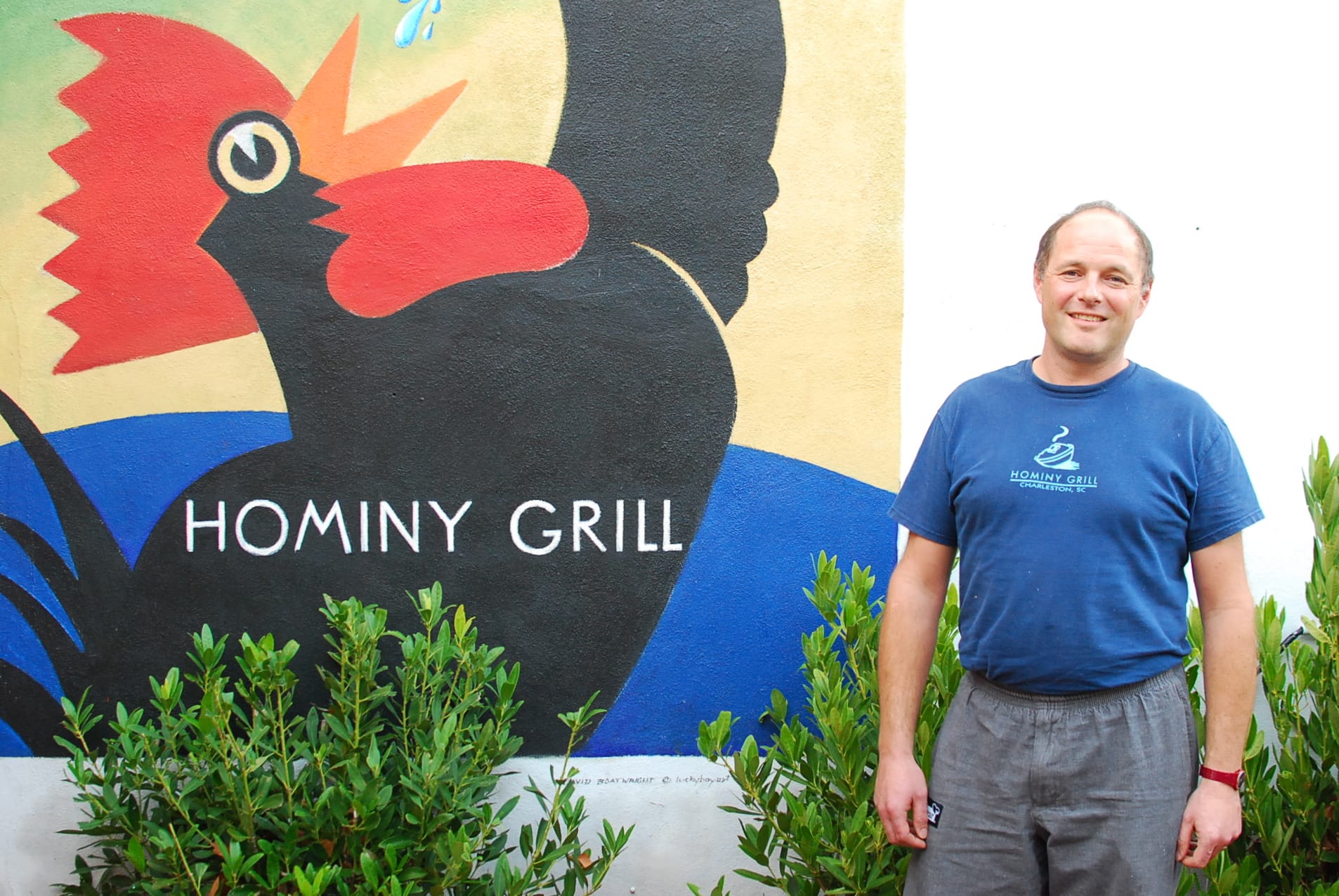
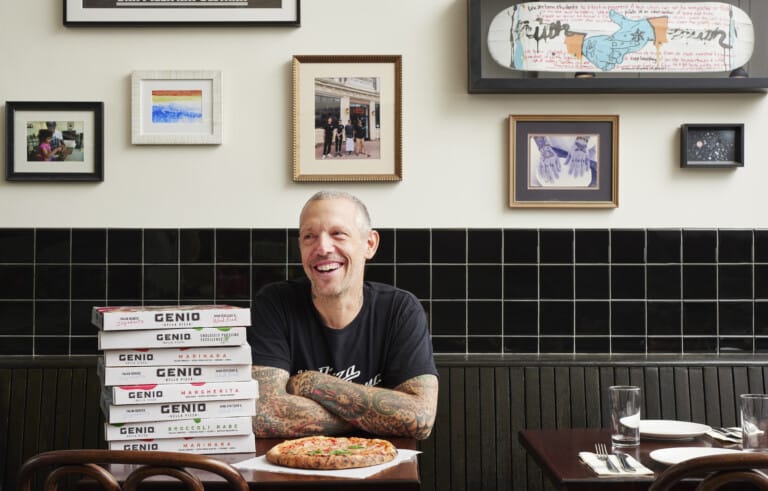
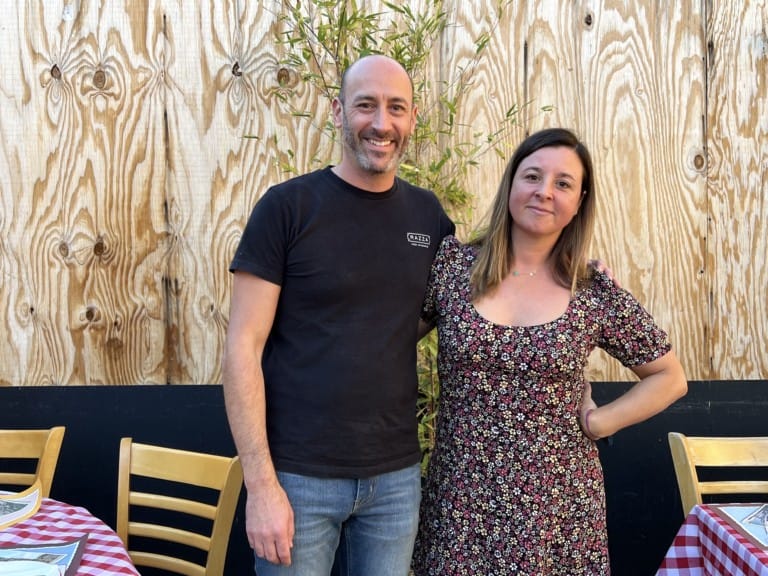
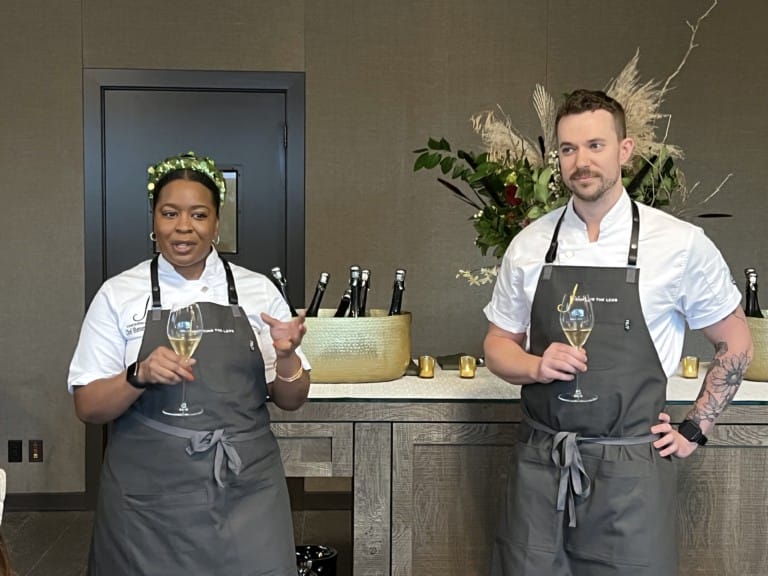




Leave a Comment